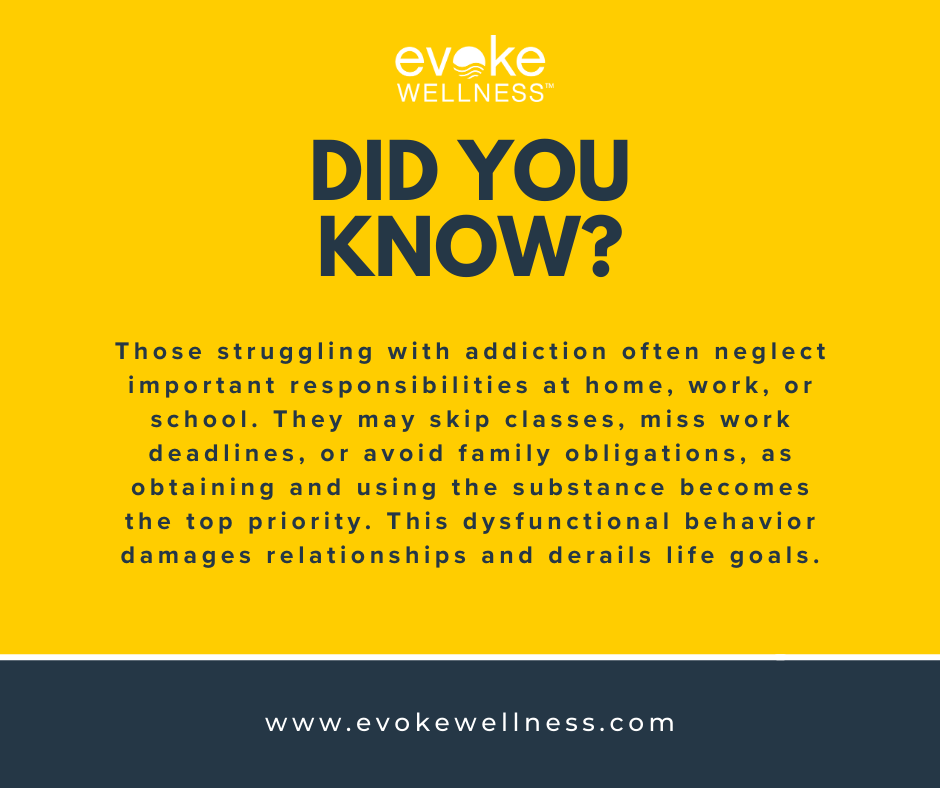Have you found yourself questioning your relationship with drugs or alcohol? You’re not alone. According to recent data from the National Survey on Drug Use and Health, over 20 million Americans struggle with substance use disorders each year. Identifying when casual use has crossed the line into addiction can be challenging, but recognizing the signs early is crucial for getting proper treatment. This article will explore key indicators that it may be time to seek professional help, including changes in behavior, health impacts, and effects on relationships. We’ll also discuss options for addiction treatment, mental health support, and dual diagnosis care to address co-occurring disorders. Understanding these warning signs could be the first step toward reclaiming your health and wellbeing.
Together, let’s embrace the journey to recovery and the promise of a new beginning. Call us at (866)429-2960 today or reach out online.
Understanding Substance Use Disorders
Complex Brain Changes
Substance use disorders are characterized by compulsive drug or alcohol use despite harmful consequences. They involve profound changes in brain structure and function, impairing self-control and causing intense cravings. These disorders can rewire the brain’s reward system, making it challenging to quit without professional help.
Contributing Factors
Genetics, mental health conditions, trauma, and environmental influences can all contribute to the development of substance use disorders. For instance, adults with ADHD are 2-3 times more likely to develop addictions, creating a dual diagnosis that requires specialized treatment.
Treatment Approaches
Effective treatment often combines behavioral therapies, medication, and support services to address underlying causes and promote long-term recovery. Medication-assisted treatment can help manage withdrawal symptoms and cravings, while comprehensive programs address co-occurring mental health disorders.
Professional Help
Seeking professional help from healthcare providers, counselors, or support groups is crucial for managing substance use disorders and achieving lasting sobriety. Early intervention and integrated care are key, as mental health issues often develop during adolescence, increasing the risk of co-occurring disorders.
Recognizing the Signs of a Substance Abuse Problem
Key Physical Indicators
- Bloodshot eyes, irregular sleep patterns, dramatic weight fluctuations, and deteriorating personal grooming habits can be telltale signs of addiction, according to Evoke Wellness’ blog on calling a drug addiction helpline. Physical symptoms often reflect the body’s dependence on a substance.
Behavioral Shifts
Behavioral changes associated with addiction may involve mood swings, secretive behavior, loss of motivation, and social withdrawal. Risky or illegal actions to obtain drugs, such as stealing or legal troubles, are also red flags. These behaviors indicate a shift in priorities driven by substance abuse.
Psychological Warning Signs
On a psychological level, anxiety, depression, paranoia, and intense cravings for the substance can signal addiction. Feeling unable to control usage despite negative consequences is a key indicator that professional help may be needed.
Impact on Daily Life
Beyond the physical and mental effects, addiction often leads to declining performance at work or school, as well as strained relationships and social isolation. As the addiction takes hold, everyday responsibilities and meaningful connections may suffer.
Recognizing these multifaceted signs is crucial for taking that first vital step towards recovery. While challenging, this self-awareness can open the door to support resources and comprehensive addiction treatment programs tailored to each individual’s needs.
Identifying Potential Substance Use Disorders
Recognizing the Signs
Substance use disorders can manifest in various ways, but some common signs include changes in mood, energy levels, and sleep patterns. Individuals may exhibit increased risk-taking and impulsive behaviors, as well as difficulty controlling or cutting back on substance use, even when facing negative consequences. According to the National Institute on Drug Abuse, these behaviors often stem from the brain’s altered reward pathways and impaired self-control.
Physical and Behavioral Indicators
- Bloodshot eyes, dilated or constricted pupils
- Sudden weight fluctuations
- Impaired coordination and slurred speech
- Secrecy, social isolation, and loss of motivation
- Mood swings and personality changes
As outlined by Evoke Wellness, even over-the-counter medications like dextromethorphan (DXM) can lead to addiction when abused, so it’s crucial to monitor any unusual cravings or excessive consumption.
Seeking Professional Help
If you or a loved one exhibits these signs, it’s essential to seek professional help. Effective treatment often involves a comprehensive approach, addressing biological, psychological, and social factors contributing to the addiction. Reputable treatment programs, such as those offered by Evoke Wellness, utilize evidence-based practices like medication-assisted treatment, inpatient and outpatient rehabilitation, and dual diagnosis care for co-occurring mental health disorders.
By recognizing the signs and seeking appropriate treatment, individuals can begin their journey towards recovery and regain control over their lives. Remember, relapse is a common part of the recovery process, and with the right support, lasting sobriety is achievable.
The Evolution of Substance Use Disorder as a Diagnosis
Historical Shift in Understanding
Historically, substance use disorder was viewed primarily through a moral lens, where addiction was seen as a personal failing or lack of willpower. However, over time, the understanding of addiction has evolved from a moral issue to a complex brain disease influenced by biological, environmental, and behavioral factors. This shift in perspective has been instrumental in destigmatizing addiction and recognizing the need for medical intervention and support.
Diagnostic Criteria Evolution
As the understanding of substance use disorder has progressed, so too have the diagnostic criteria used by mental health professionals. The Diagnostic and Statistical Manual of Mental Disorders (DSM), a widely recognized reference for mental health diagnoses, has undergone several revisions to reflect the latest research and clinical observations.
In the most recent edition, the DSM-5, substance use disorder is defined by a cluster of cognitive, behavioral, and physiological symptoms indicating continued use despite significant substance-related problems. These criteria encompass aspects such as craving, tolerance, withdrawal symptoms, and the inability to control substance use, providing a comprehensive framework for diagnosis.
Role of Mental Health Professionals
Mental health professionals play a crucial role in accurately diagnosing substance use disorder and developing appropriate treatment plans. Through comprehensive evaluations, they assess the severity of the disorder, identify co-occurring mental health conditions, and consider factors such as family history, environmental influences, and individual characteristics.
By collaborating with multidisciplinary teams, including addiction specialists, counselors, and medical professionals, mental health professionals can develop personalized treatment approaches that address the unique needs of each individual. This holistic approach recognizes the complex interplay of biological, psychological, and social factors in substance use disorder, enhancing the chances of successful recovery.
Four Key Warning Signs of a Drug Problem
Growing Tolerance & Withdrawal
As substance abuse escalates, users develop an increased tolerance, requiring higher doses to achieve the desired effects. They may also experience uncomfortable withdrawal symptoms – physical or psychological – when attempting to stop using. These are telltale signs of addiction, indicating the brain’s chemistry has been altered.
Neglecting Responsibilities
Continued Use Despite Consequences
Even as drug or alcohol use causes serious health issues, legal troubles, or relationship strain, individuals with substance use disorders find themselves unable to stop. The compulsive need to use overrides rational decision-making, as the brain has been hijacked by addiction. This continued use despite negative consequences is a hallmark of addiction.
Dangerous or Illegal Behavior
In the grips of addiction, individuals may resort to dangerous or illegal methods to obtain their substance of choice. This could include stealing, lying, doctor shopping for prescriptions, or engaging in other high-risk activities they would normally avoid when sober. Such reckless, out-of-character behavior signals a serious problem.
If you or a loved one is experiencing multiple warning signs, it may be time to seek professional help. Comprehensive addiction treatment that addresses underlying mental health issues is crucial for overcoming substance use disorders and achieving lasting recovery.
Seeking Help: Addiction Treatment and Mental Health Support
Recognizing the Need
Acknowledging the need for help is a crucial first step towards recovery. Signs of addiction include compulsive substance use, disregarding harmful consequences, intense cravings, and a preoccupation with obtaining and using the substance. Physical symptoms like bloodshot eyes, irregular sleep, dramatic weight changes, and deteriorating personal grooming habits can also indicate a deeper issue. Psychological signs such as anxiety, depression, paranoia, mood swings, and social withdrawal should not be ignored.
Integrated Treatment Approach
Addiction and mental health disorders often co-occur, with a complex, cyclical relationship. Untreated mental illness can increase susceptibility to addiction as a means of self-medication, while substance abuse can worsen symptoms of conditions like depression and anxiety. Comprehensive treatment programs that address both issues simultaneously are crucial for effective recovery.
Seeking Professional Guidance
Calling a drug addiction helpline is a vital step towards recovery, providing confidential support, access to local resources, and personalized treatment plans. Helpline counselors offer compassionate guidance, recommendations for appropriate programs, and 24/7 accessibility to ensure help is available whenever needed.
When seeking treatment, it’s essential to assess your specific needs, research options, consider the location (inpatient vs. outpatient), and evaluate the program’s aftercare support to ensure a comprehensive recovery plan. Medication-assisted therapies, behavioral interventions, and holistic wellness practices may be combined to support long-term sobriety.
Conclusion
As you reflect on the signs of substance use disorder discussed in this article, remember that recognizing the problem is the crucial first step toward recovery. If you or a loved one are exhibiting multiple warning signs, it’s time to seek professional help. Recent studies show that integrated treatment approaches addressing both addiction and mental health yield the best outcomes, with success rates improving by up to 60% when dual diagnosis is properly addressed. Don’t wait for the problem to worsen—reach out to a qualified treatment center today. With proper support and evidence-based therapies, recovery is possible. Take that courageous step towards a healthier, substance-free life. Your future self will thank you for it.
Begin Your Journey with Evoke Wellness
If you or a loved one is considering treatment, Evoke Wellness invites you to contact us. Our compassionate team is ready to answer your questions, discuss your needs, and help you take the first steps toward recovery. At Evoke Wellness, you will find more than just a treatment program – you’ll discover a community dedicated to your wellness and success. Together, let’s embrace the journey to recovery and the promise of a new beginning. Call us at (866)429-2960 today or reach out online.



